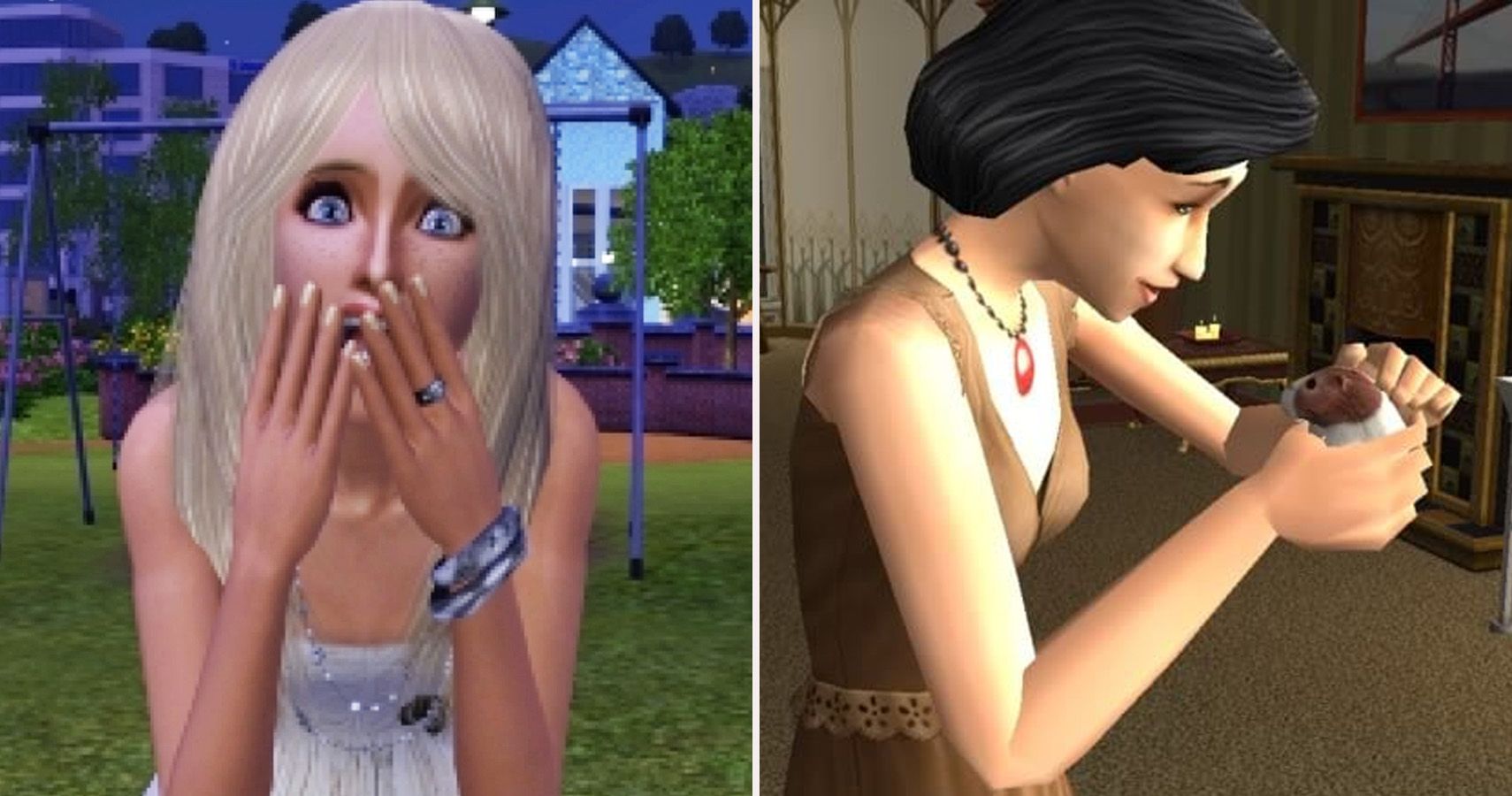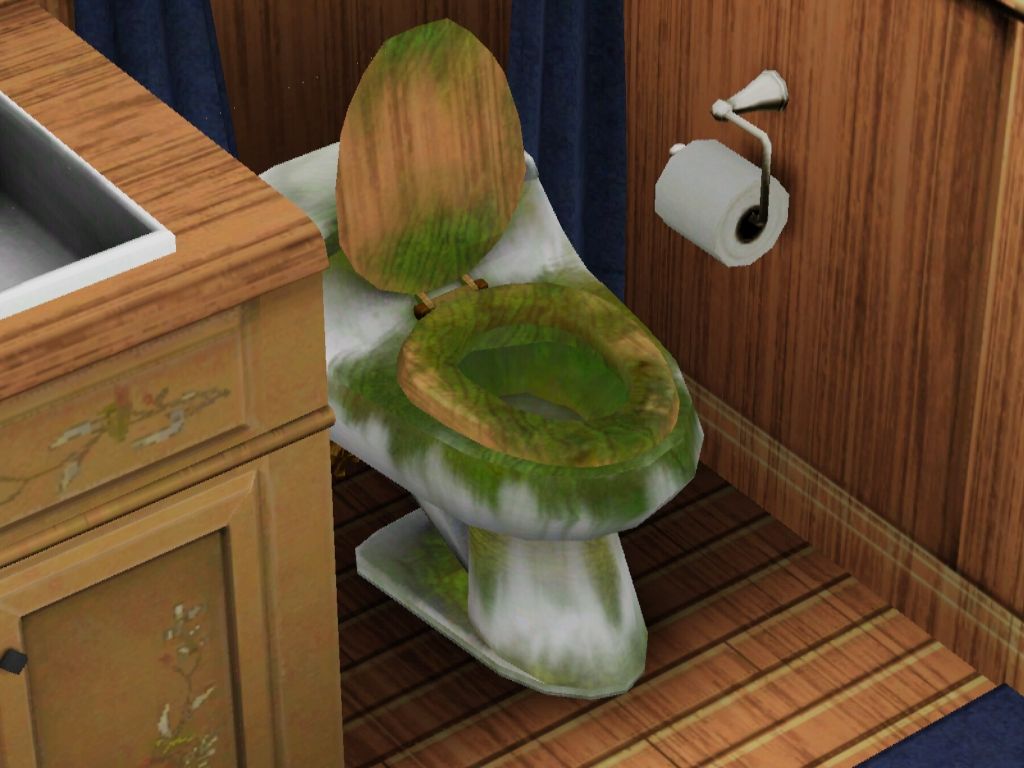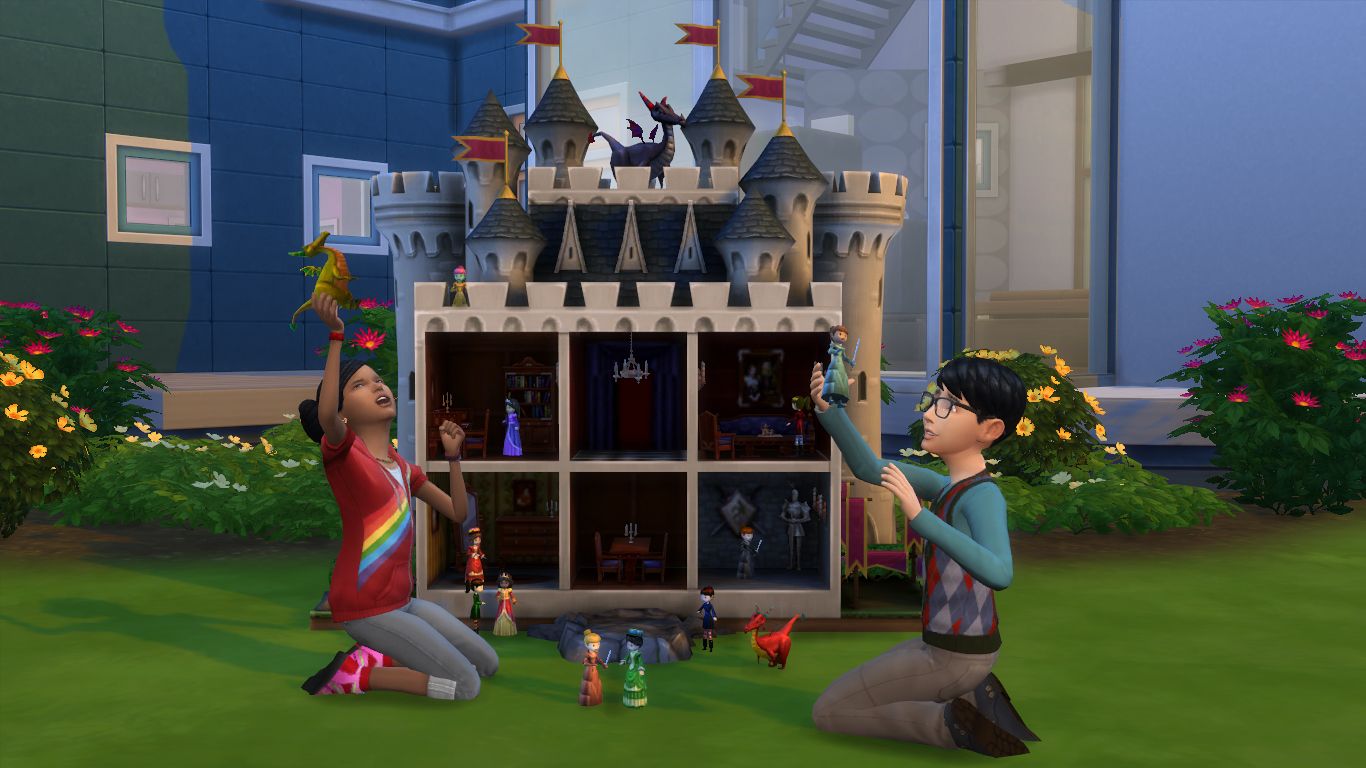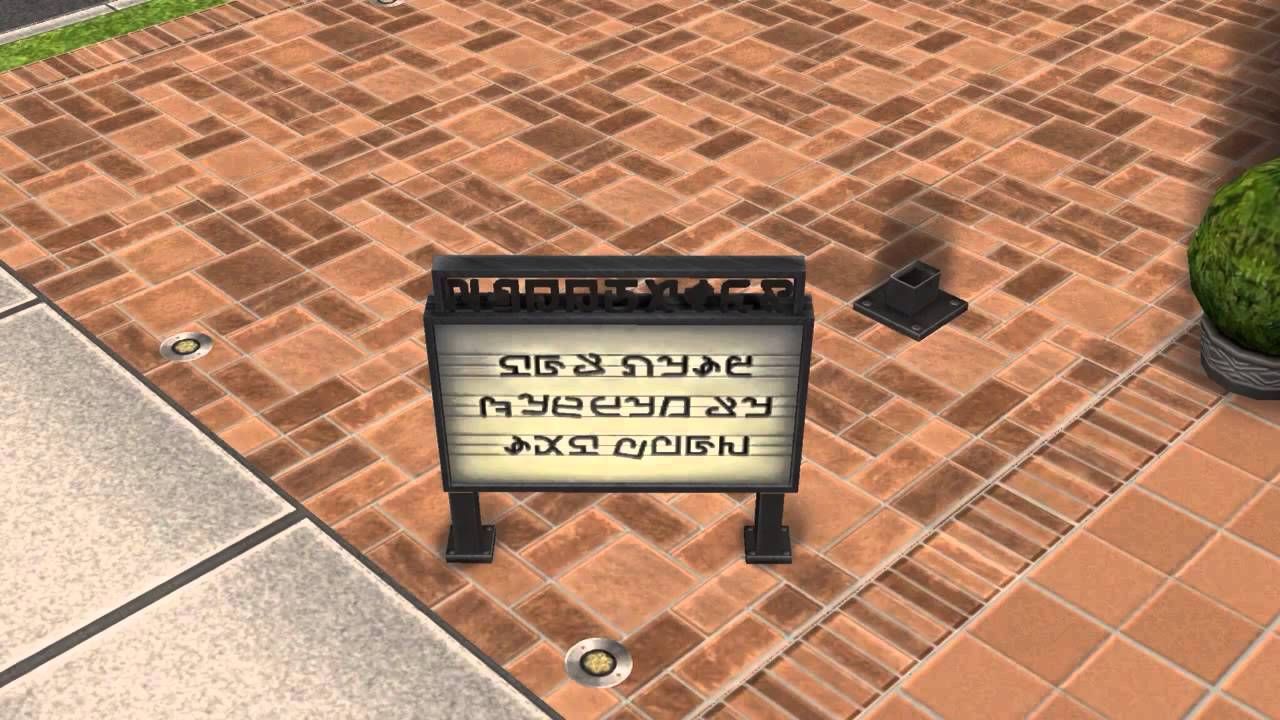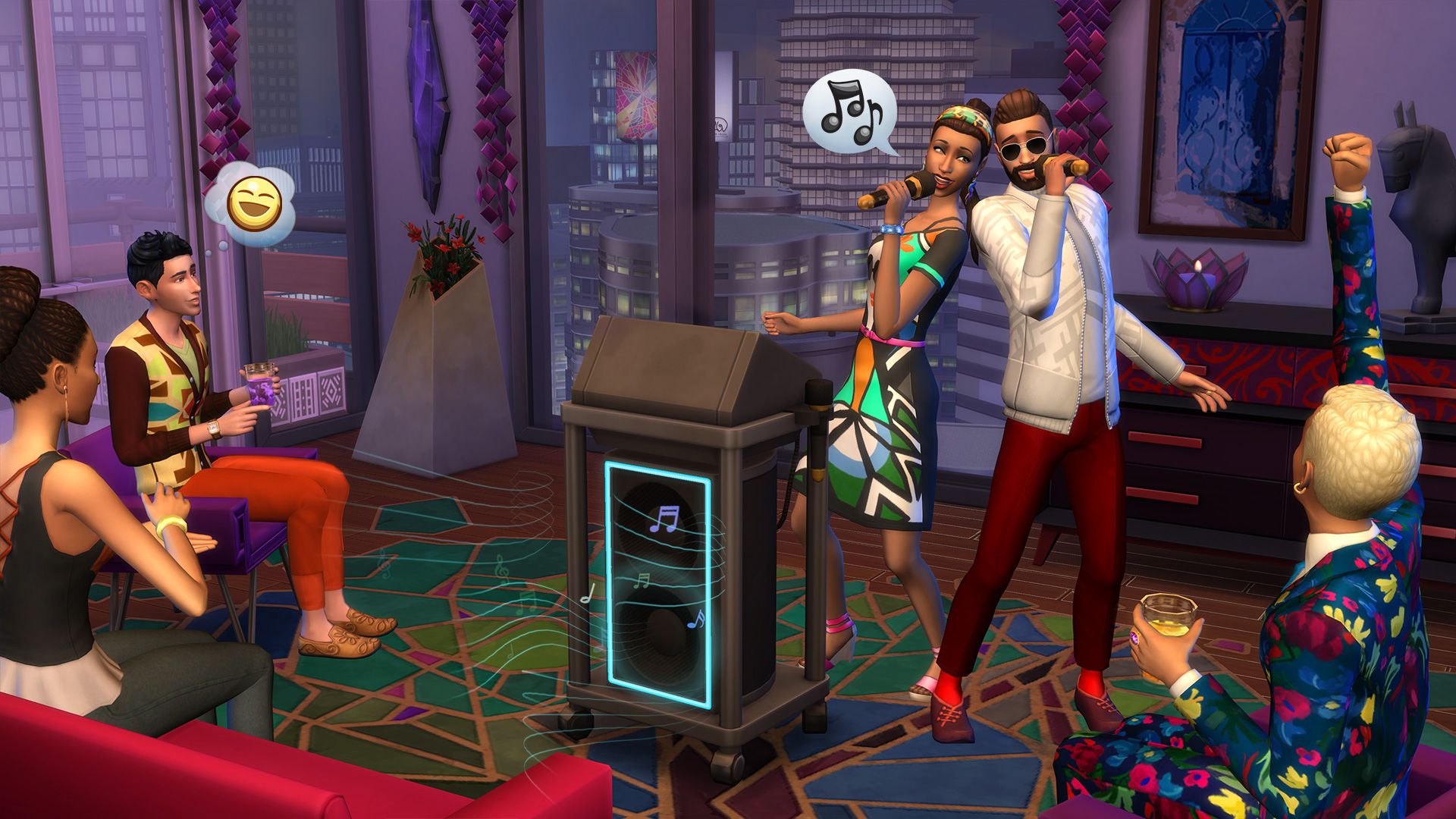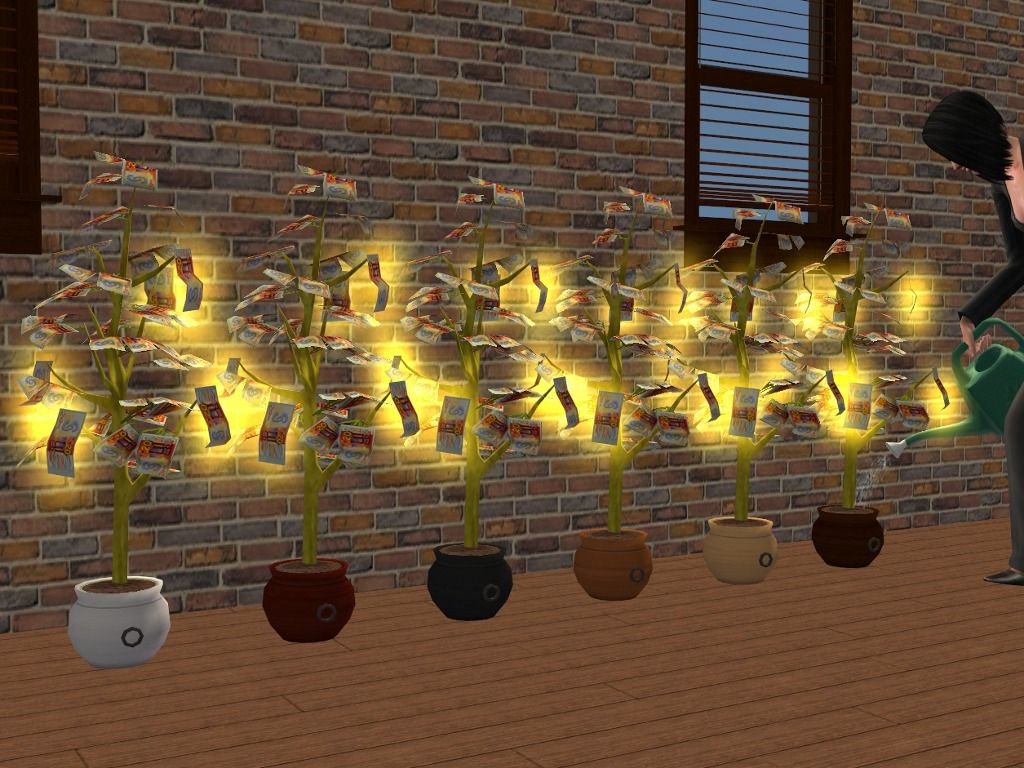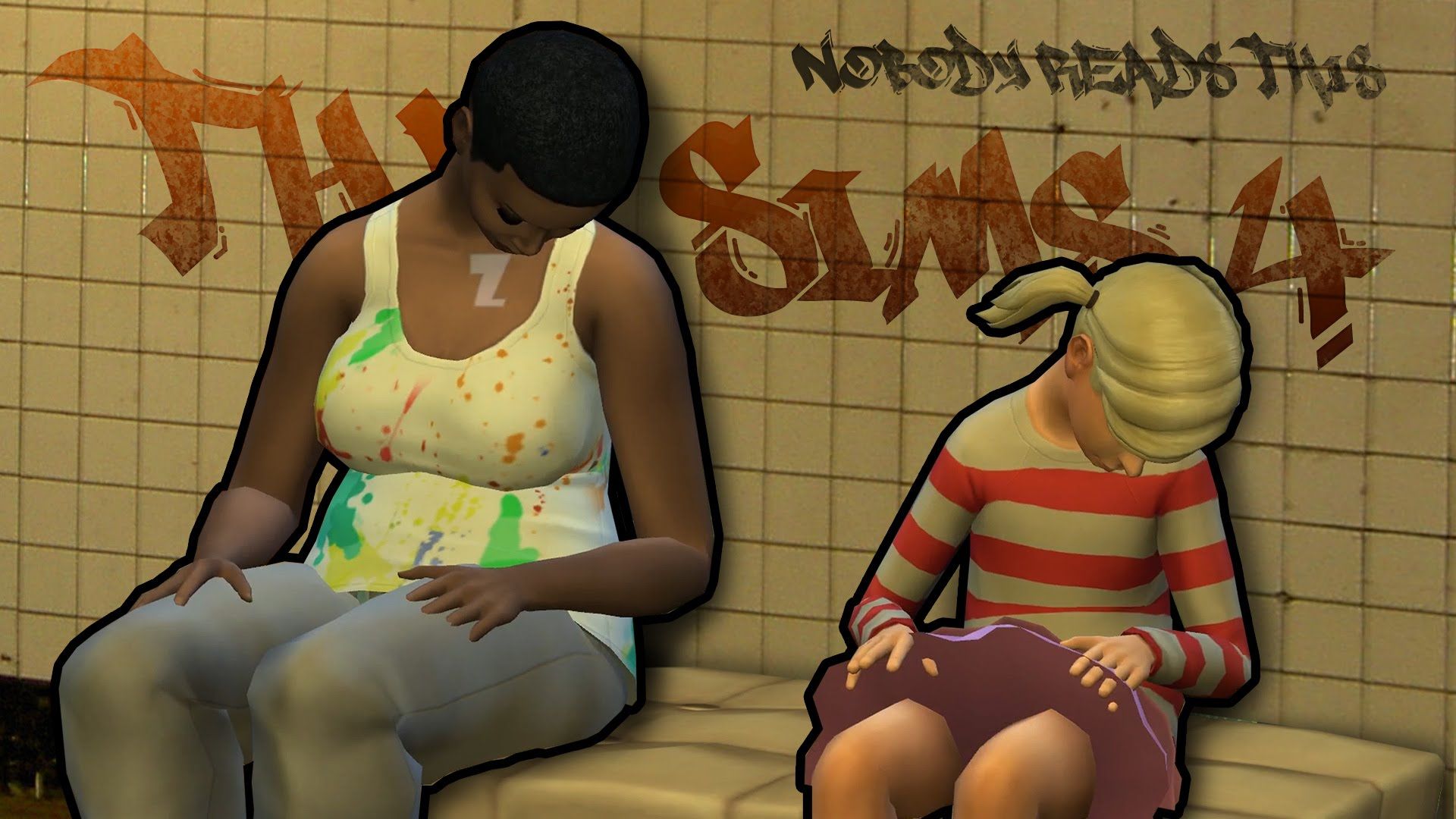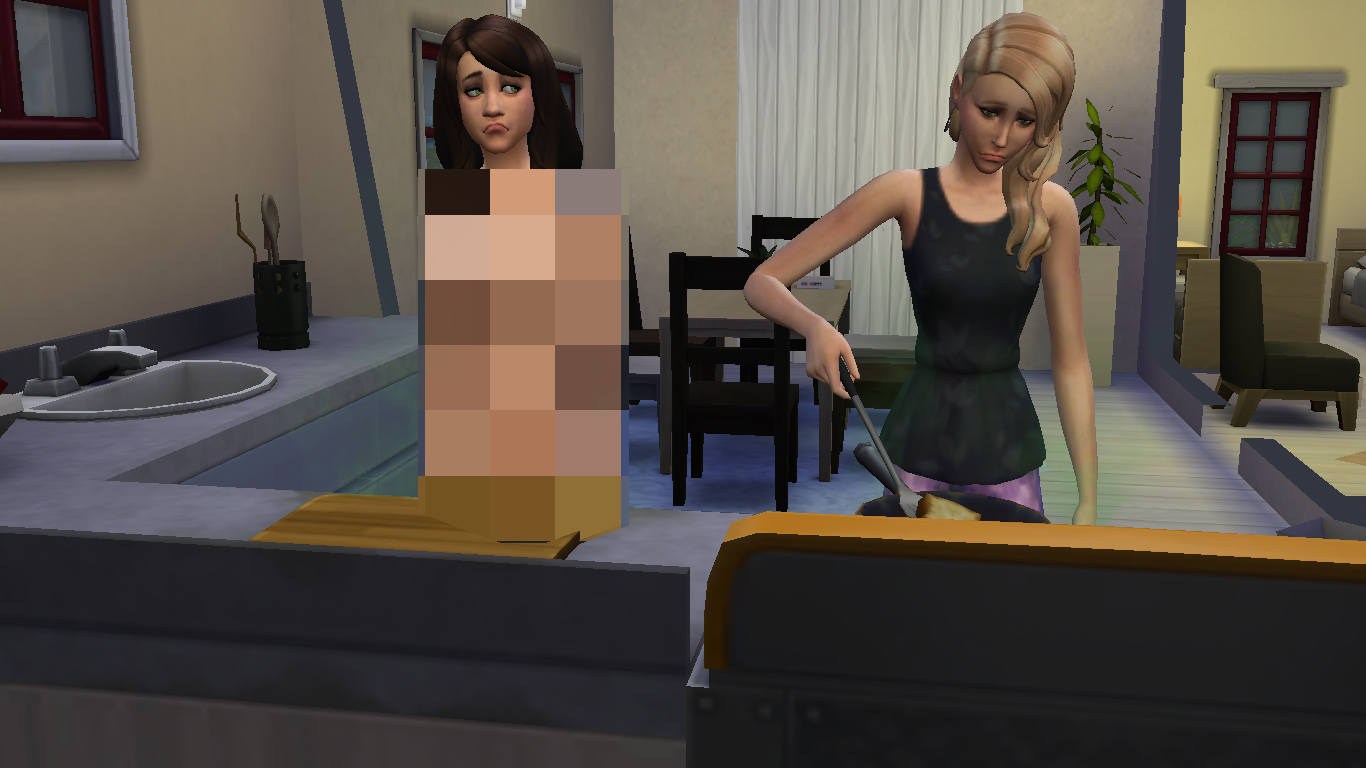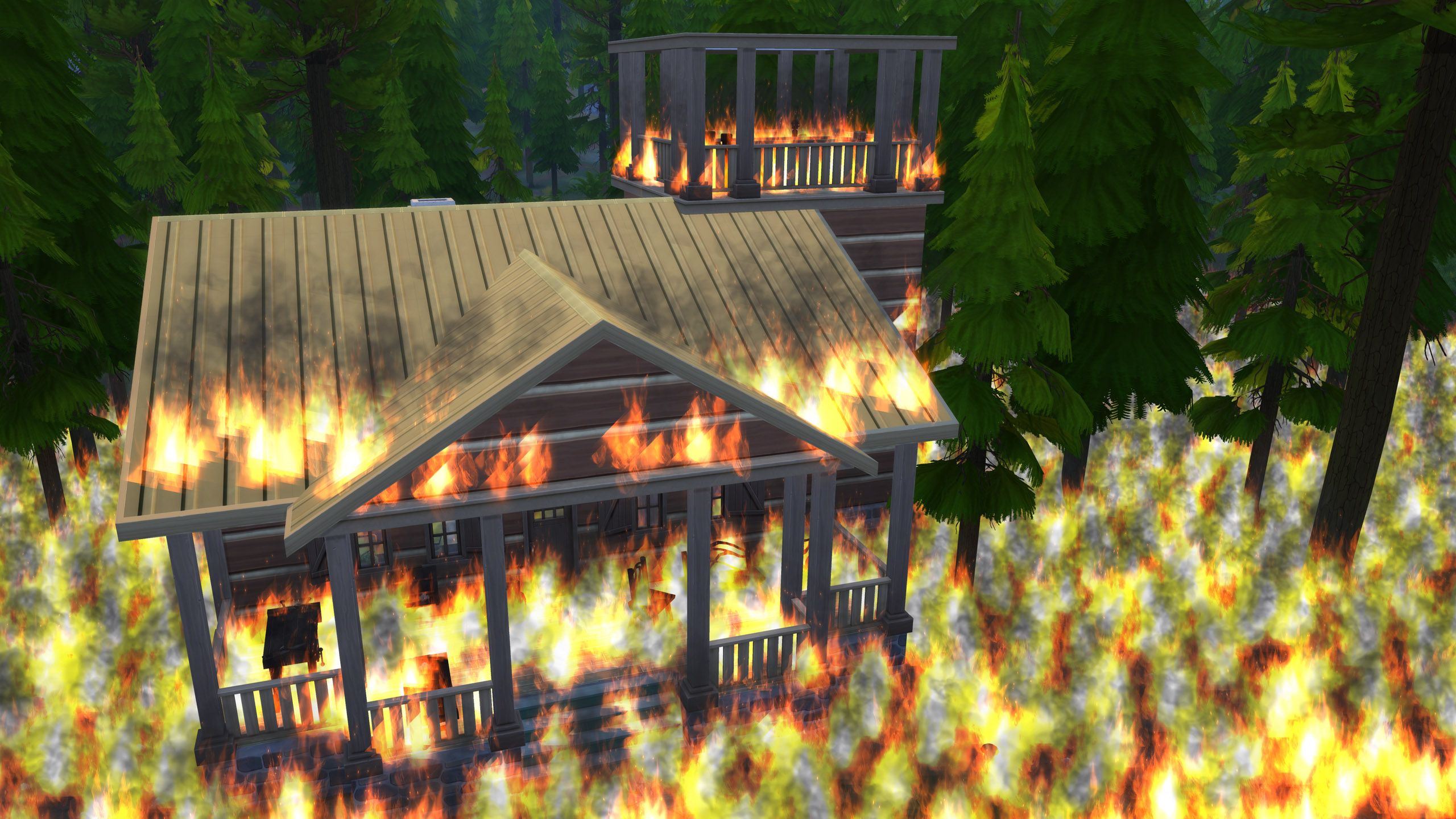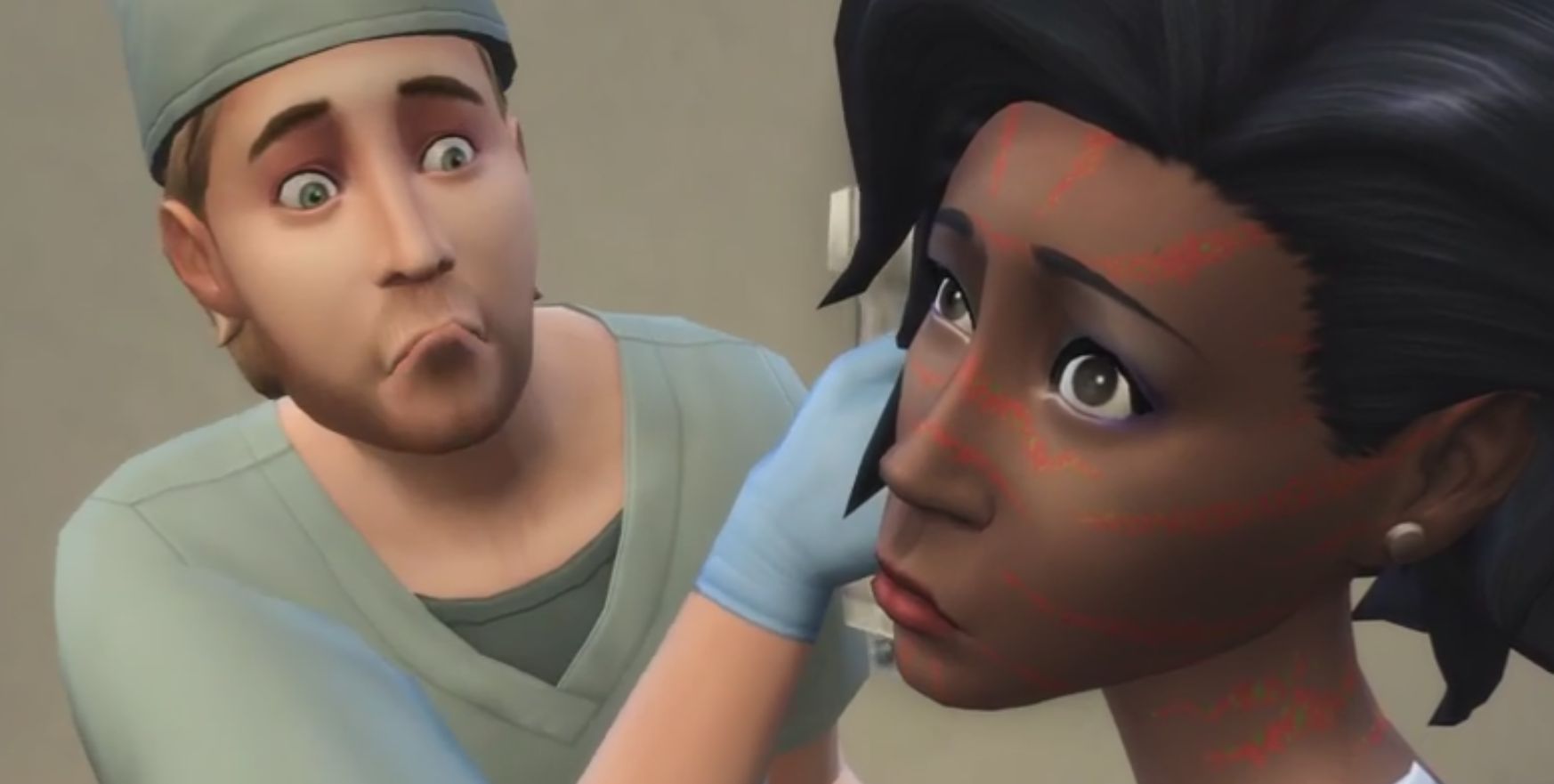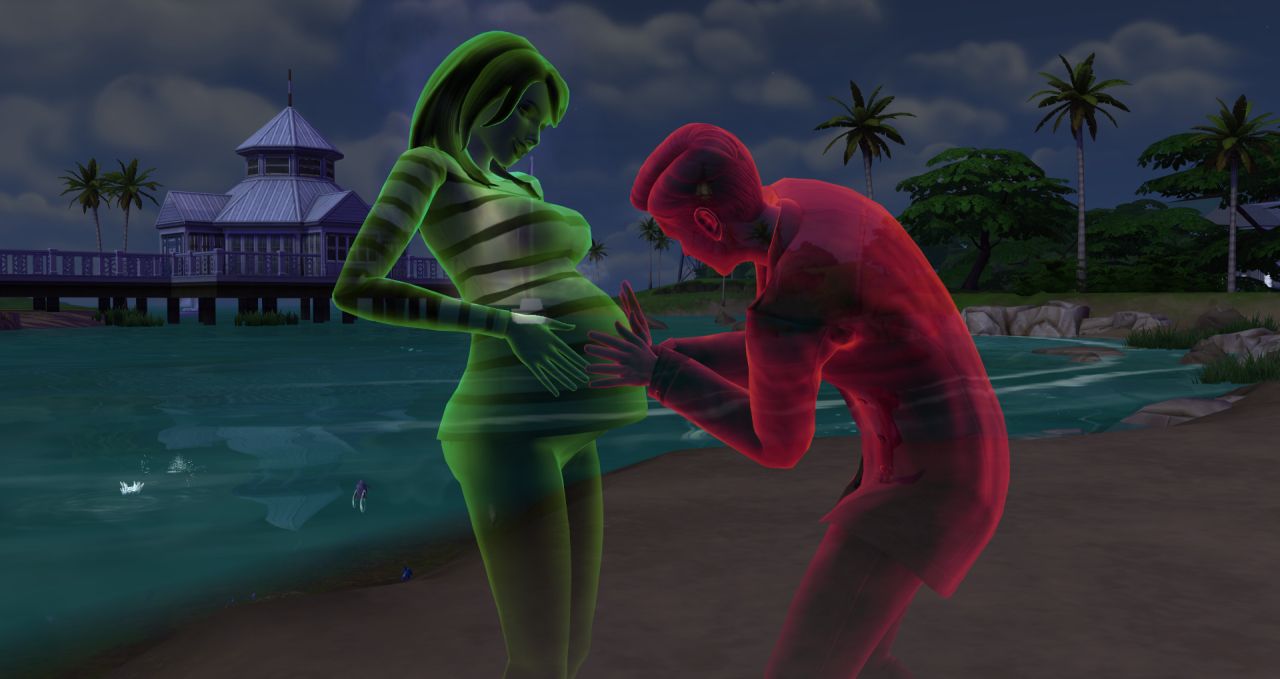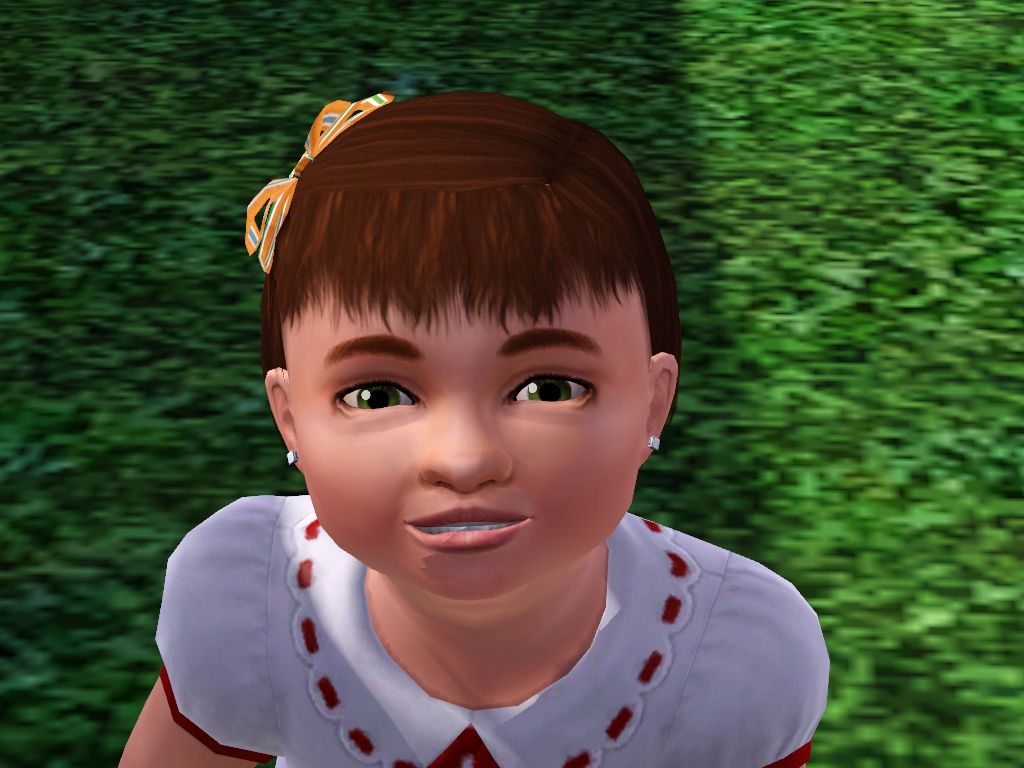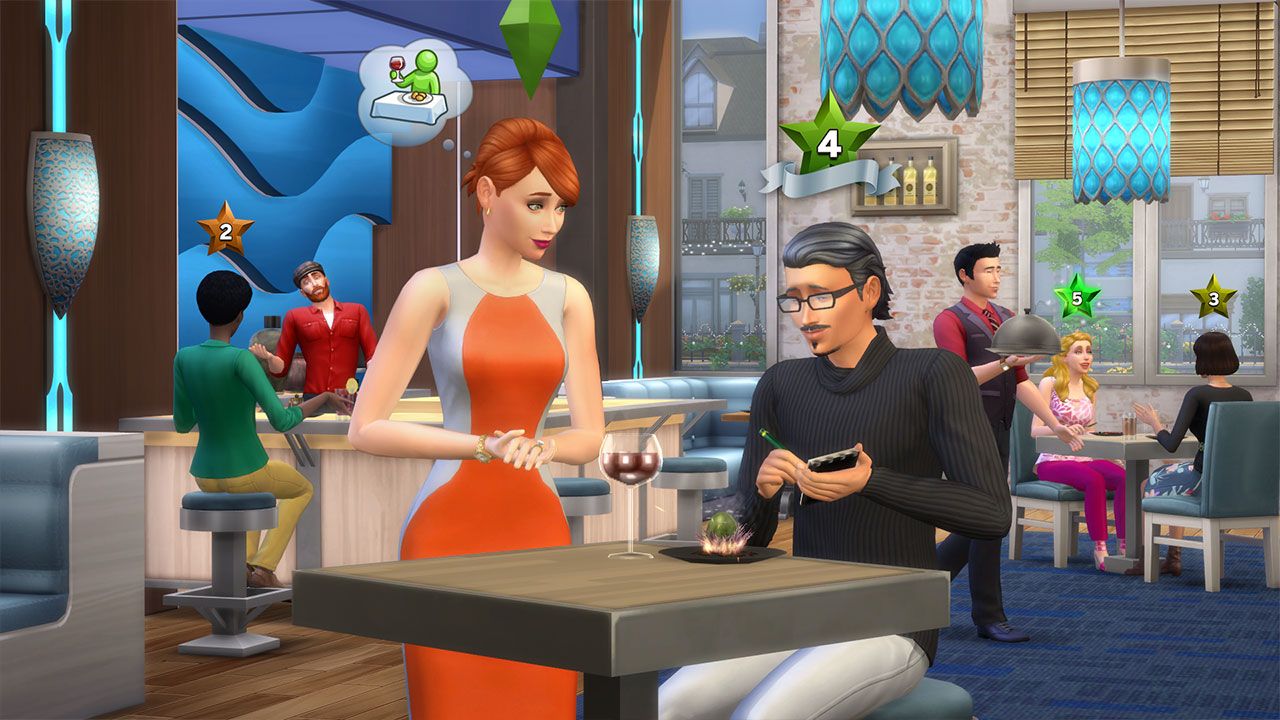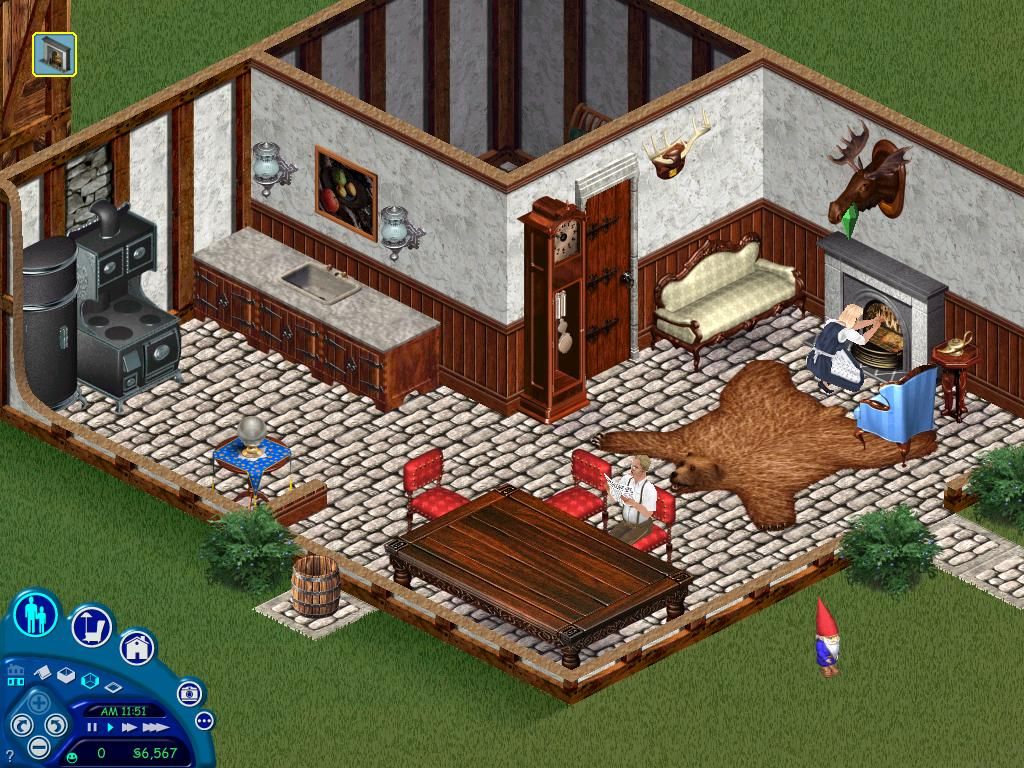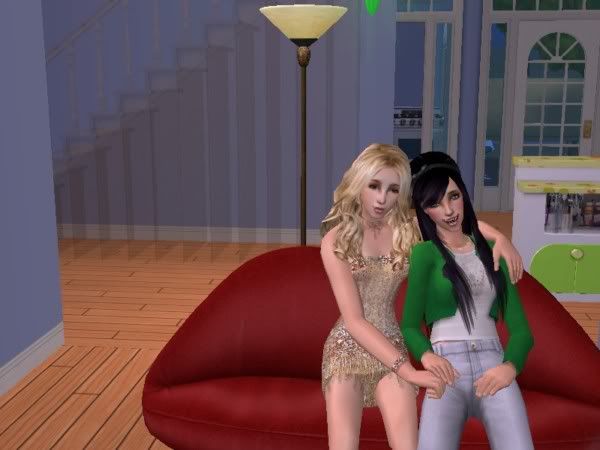If there’s one thing EA’s appropriately-if-lazily-titled life simulation series The Sims is known for, it’s blurring the line between casual video game and benevolent deity engine.
From its inception in the early 90s to its release in 2000—and to its domination of the life simulation market today—this iconic, time-devouring sandbox series has made a habit of charming players with its mix of quirky humor and emotional resonance, somehow managing to turn the most mundane tasks, like preparing meals, learning to play an instrument, and even scrubbing the toilet, into entertaining and engaging activities.
And with tons of awards under its belt, including a handful of Guinness World Records including 2008’s “Best Selling PC Game of All Time,” which recognized the actually unbelievable fact that its first entry had sold 16 million units since its 2000 release—100 times EA’s expected 160,000 units—it’s no wonder that the series would go on to become a flagship property.
But just because a renowned franchise moves 200 million copies across the globe all the while snagging shiny commendations from some of the web’s biggest sites, that doesn’t mean it’s without its dubious decisions, kooky controversies, and messy missteps—many of which its developers would rather its fans forget.
Open your eyes, folks. I present: 15 dark secrets about The Sims they don’t want you to know about.
15 Potty Humor
Every success story needs an antagonist, a naysayer. Everybody loves an underdog, right? Unfortunately, when those naysayers are your own executives, it can put a damper on studio morale. Such was the case when Will Wright, creator of The Sims, first pitched his idea for the iconic digital life simulator to Maxis in 1993.
In order to test Sims’ ability to interact with their environment, Will Wright designed a toilet. In his eyes, it was utilitarian. It was something of a multi-faceted object. Players could engage with it in a number of ways—using it, cleaning it, lifting the seat, lowering the seat…
Well, that’s cute and all, I guess, but Maxis executives didn’t want to attach their name to a toilet-cleaning simulator. They mocked it around the office, calling it "The Toilet Game.” Because… well, it was a game where you clean toilets.
Hey—would you have picked it up?
14 Quake It 'Til You Make It
Video game developers find inspiration everywhere. And while some of the origin stories behind your favorite games aren’t exactly shocking, others can force even the most confident gaming trivia buff to reevaluate his memory banks.
Satoshi Tajiri channeled his childhood obsession with bug-catching to kickstart the global Pokémon phenomenon. 2016’s teen angst simulator and sleeper hit Life is Strange drew inspiration from Sundance films (and Twin Peaks, and sci-fi movies, and…). The Sims—well, The Sims owes its creation to Quake. Yup, you read that right—Quake, a super gross, super violent, overall edgy game with a fanatical following of hardcore players who spent hours developing their own custom-made levels. That same commitment to handcrafting environments would go on to inspire Will Wright to develop The Sims, giving players full control over their surroundings without all that troublesome blood splatter-y stuff, of course.
13 What’s In A Name?
Let me just put this out there: gender expectations are stupid, and Maxis knows it. That’s probably why they up and removed all gender restrictions from The Sims 4 in a huge 2016 update that allowed male characters to strut around in stilettos, swapping beer bellies for baby bumps—and vice-versa.
Personally, I think it was a great move, allowing players to experience a whole new level of customization, immersion, and creative freedom.
But Maxis hasn’t always been so openly inclusive when it comes to gender norms in The Sims. When Will Wright originally approached them with his idea for The Sims, it carried a different name: "Dollhouse." The same executives who would go on to champion gender fluidity in gaming originally disapproved of the name because they felt that teenage boys wouldn't be interested in playing a game with such a "feminine" name.
Real progressive, guys.
12 Talk Nerdy To Me
A culture is nothing without a language—it guides individuals through reality, giving names to ideas; it enables complex communication between lovers and strangers alike; and, well, it’s real useful when you’re stuck in traffic and you need to tell the guy who just cut you off where to shove his own—
The implementation of a nonsensical, made-up language like Simlish was a clever way to reach audiences from all cultures. And while it was inspired by the linguistic patterns of Ukrainian, Tagalog, Latin, and Navajo, the initial idea came to Will Wright after listening to WWII code talkers who spoke in Navajo in order to confuse Japanese code breakers who might be listening in.
So, in a way, Simlish—a language that brought the world together—was born from a conflict that nearly tore the world apart.
You’re welcome.
11 Put Your Money Where Your Mouth Is
The creation of Simlish may have an intriguing backstory, but that’s not where the tale of its implementation ends. Remember: every decision in video game development, no matter how artistic, comes down to one thing. Money. It’s an unfortunate truth—but it is a truth. Let’s rewind a bit.
Will Wright originally wanted English dialogue in his game, but he didn’t want it to become repetitive. After all, you can only record so many lines in a game that can be literally played ad infinitum. In a questionable case of total-yet-unchecked cultural insensitivity, he even considered implementing the Navajo language into the game. Ultimately, he decided on Simlish. Why?
One of the primary reasons that the developers adopted a nonsensical language that didn't wholly adhere to any real-world linguistics was to save money during the translation process—since they wouldn't need to hire new voiceover actors to dub the dialogue in different languages. Cheap sons of….
10 Simoleans Rule Everything Around Me
2002 saw the release of the mediocrely-received The Sims Online—an MMO that attempted to replicate the original game's charm. With a fraction of the content. And a $9.99 monthly subscription fee. Needless to say, it didn't do well, it was re-branded as EA-Land a few years later, and it would eventually fizzle out completely (save for an incomprehensible fan revival project that literally nobody asked for).
Still, poor sales and a short lifespan doesn’t mean The Sims Online was without its fair share of controversy. In 2004, it found itself at the center of a spot o' bother when one Peter Ludlow, a former professor of philosophy and linguistics at the University of Michigan, exposed a virtual [redacted] ring where players, some of whom Ludlow claimed were minors, exchanged.... "talk" for simoleans—The Sims Online's virtual currency.
Not too long after Ludlow blew the whistle about the seedy underbelly of Alphaville (one of The Sims Online’s biggest cities), his account was promptly terminated by EA. Explaining this decision was a letter addressed to Ludlow personally. It read, in part, “While we regret [terminating Ludlow’s account], we feel it is necessary for the good of the game and its community.”
9 No Place Like Home
Will Wright always had huge aspirations for his life simulator, envisioning The Sims as a sort of interactive dollhouse for both children and adults where they could script their own stories and play overseer to the denizens of their personal sandbox neighborhoods.
Well, in 2009, a game design student proved that not every story has a happy ending, taking the Sims fandom by storm in the process. Robin Burkinshaw, a Sims 3 fan from the UK, created two sims—Kev and his daughter, Alice. He then built them a "home" that resembled a park, outfitted them with all sorts of behaviors commonly found in real-life homeless individuals (attempting to simulate mental illness using a series of traits), and chronicled their lives on a website.
What followed was a heartbreaking tale of disintegrating mental health, death, and redemption as Kevin passed away and Alice landed a job after years of achievement despite her poverty. Yes—all of which played out in a game where you can instruct people to hop into pools, remove the ladder, and watch them drown to death.
Say what you will, but I call that “pastiche.”
8 It's Just A Few Pixels
Everybody knows that you can only see so much skin in The Sims. It’s a kid’s game, man—what are you, some kinda deviant? Some kinda sicko?
The developers blur out the naughty bits for a reason, and you’re prohibited from taking a peek at their pixelated private parts—unless, you know, you remove the censor blur with certain codes accessible in early, un-patched versions of the game.
Or download a mod that's easily Google-able.
Or you could go all-in on your inner debauch and download a certain steamy mod that I’m almost certainly not allowed to name. Let’s just say it rhymes with “Wicked Whims.”
Oh. No. Wait—
7 Ins-fire-ation
Some of the world’s greatest art rises, like a phoenix, from the ashes of tragedy. Norwegian painter Edvard Munch, known for his iconic “Scream” painting, found early infamy after watching his sister succumb to tuberculosis—he chronicled her illness in a series of almost identical paintings called “The Sick Child,” early 20th century expressionist pieces that all but defined the style. A 6.9 MMS earthquake that devastated southern Hyōgo Prefecture, taking nearly 6,500 lives, inspired Japanese novelist Haruki Murakami to write one of his most well-known short story collections, after the quake. Likewise, The Sims was heavily influenced by a particular tragedy that affected not only the lives of Will Wright and his family, but also the 1,520 acres of land surrounding his home—and the estimated 2,483 families living along the hillsides of Northern Oakland, California. The Oakland firestorm of 1991 reduced all of Will Wright’s possessions—save for a few family photographs—to charred rubble. Luckily, he and his family survived the disaster unscathed.
It was only a few months later that Will, who admits that he hates shopping, began philosophizing about the prospect of re-purchasing his household amenities. With the help of a few books with names so nerdy I’m just going to skip over them altogether, Wright managed to develop a model that he believed could accurately estimate the happiness of his “Dollhouse” characters, thus drafting the first incarnation of The Sims’ “happiness landscape.”
6 Viral War-fur
One of the most polarizing elements of the original Sims game had nothing to do with the scandalous stuff we've talked about earlier—and everything to do with guinea pigs. Guinea pigs? Yes, guinea pigs.
For those who skipped the first in the series, let me break it down for you: August of 2000 saw the release of the first Sims expansion pack, The Sims: Livin’ Large. With a ton of new features ranging from a chemistry set that allowed Sims to concoct their own potions to the Grim Reaper, this add-on turned an already immersive gaming experience into a must-play phenomenon. But when players’ Sims started croaking left and right with no obvious cause for their untimely demises, desk chair sleuths took to the interweb in search of answers, and—
Wait, can we just take a moment and think about what internet detective-ing must have been like in 2000? God, those brave souls…
Anyway, to make a long story short: guinea pigs. Will Wright introduced a secret virus into his own game via guinea pigs. You forget to clean their cage, you get bit, you get sick, you get dead. The end. (Thanks, dial-up detectives!)
5 The Culling
Oh, The Sims 4, you beautiful, imperfect game. Perhaps the most divisive entry in the whole series, The Sims 4 has been plagued by technical… “quirks” since its release. One of its most notorious…. “quirks…” limits neighborhoods to 180 Sims. What happens once you reach the limit? you might ask. Oh, well, that’s a good question.
The short answer is: “culling.”
The long answer is a definition of the term “culling” in the context of The Sims 4. According to the ever-helpful Crinrict’s Sims 4 Help Blog, culling is “the process of deleting data to keep the save game smaller and the loading faster.” In other words, culling is the removal of certain assets to keep your game running smoothly.
What assets get culled? You might ask. My, my—you are full of questions today, aren’t you! The short answer is: “unhoused sims and ghost.”
The long answer is: every unhoused character you’ve ever known and loved along with the spirits of your beloved family and friends who will disappear from all of time and space as if they’d never existed in the first place.
4 Missing Children
But the existential nightmare that is the vanishing of beings from their plane of existence isn’t the only thing that’d got Sims fans riled up and ready to bash some hoighty-toighty executive skulls in. Sharpen your pitchforks, folks—and fire up the torches. You know where this one’s headed. I’m talking toddlers. And the fact that, until January 2017, freakin’ toddlers weren’t even a freakin’ thing!
And that would have been fine. (That—that actually should have been fine. This is a game about cleaning toilets, not the 2016 election.) But toddlers had been an important stage of development throughout the entire series that only added to players’ immersion. So why did Maxis pull them out of the latest entry? And why did it take two full years for somebody to program them in?
Maybe we’ll never truly know. Or maybe EA is actually just the devil.
3 NPC-eriously?
So maybe this next one’s not really a secret—but it is a change that the developers randomly made to the games, and it really ticked off certain fans of the first two Sims games.
In a comprehensive post, a Redditor named LinksGayAwakening airs out their grievances about the way that programmers involved with The Sims 3 and The Sims 4 made every single NPC a full-fledged Sim—instead of, as the Redditor puts it, “a functional, walking, moving object,” like they were in the first two games.
LinksGayAwakening makes a fair point, arguing that The Sims 4 is populated by NPCs who become distracted during their jobs and even leave their posts for hours at a time to take care of their needs—the same needs previously exclusive to playable characters. Some might call this a more realistic experience. Others, like ya boy LGA, find it immersion-breaking.
Frankly, I understand both perspectives—but all I wanna do is fire up a Legend of Zelda game so Link can play with his Master Sword if ya know what I’m sayin’...
2 Sim-botage
But, you know what? That’s all OK. The Sims has had a rough road to success, and while the series deserves criticism—just as any media does—I for one think Will Wright’s life simulation juggernaut gets a pass for doing some, if not all, things right. Especially when you consider how aggressively its publisher, EA, tried to straight-up sabotage it from the get-go. You see, EA never really cared for the original game—they only kept it in development because they’d inherited it after buying Maxis. To EA, The Sims was like the annoying stepchild constantly nagging you for attention, even after you’ve locked it in the closet for “thinky time.”
According to programmer Patrick J. Barrett III, EA tried to undermine the title right out of the gate—during 1999's E3. Not only did the big-name publisher hide the game in its own little corner, it didn't even display its trailer alongside its other upcoming titles on their main screen. Barrett would go on to lay out his fears plainly, stating in an interview with Simon Parkin of The New Yorker, “We all knew that if we couldn’t generate any interest at E3 that year, then the game would be cancelled for good.”
Things weren’t looking good for Will Wright’s little sandbox game that could...
1 It Started Out With a Kiss
...Until an accidental lesbian kiss saved the day. And when I say “accidental,” I don’t mean “unscripted.” When I say “accidental,” I mean “girls weren’t even supposed to be able to kiss in this game holy jeez how did this accident happen.”
So let’s backtrack a bit: E3 1999 looked like a bust for The Sims—the game was restricted to a lonely, isolated area of the floor. The Sims team had pretty much given up hope that their game, which had been in development for six excruciating years, would ever see the light of day. And then, like a ray of of light breaking through a cloudy, black sky, a random, unscripted kiss between female partners drew attention from onlookers.
The Sims had entered development in the early-to-mid 90s, an era in which the positive portrayal of gay relationships in the media wasn’t exactly common. When gay themes were “explored” in mainstream media, it was mostly for comedic effect, not to mention at the expense of the LGBTQ community. So when the Sims team finally originally decided to exclude these relationships from their life simulator, programmers were resigned—if reluctant.
To make a long story short, Patrick J. Barrett III—remember him? From before?—wrote the basic code outlining Sims’ AI based on a document drafted before the team decided to pull these interactions from the final game… because his supervisor, and lead programmer, Jamie Doornbos, was on vacation, and, in turn, unavailable to instruct him otherwise…

